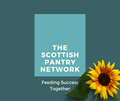Food poverty has become more of a reality for many people and their wider communities as Covid-19 impacts not only the traditional infrastructure
designed to support those in greatest need, but also a�ects the wider economy.
Many people where already struggling with low pay and food insecurity prior to
the pandemic, which has now been exasperated following the outbreak, with
the need for basic items including food increasing. The risk of poor mental
health, social isolation, debt, relationship pressures and unemployment has also
increased. The need for providing basic support including food has increased
dramatically due to Covid-19, as has the risk of poor mental health, social
isolation, debt, relationship pressures and unemployment. TSPN member help
facilitate an e�ective way to provide food with dignity within local communities,
while making families budget go further, increasing community engagement,
social cohesion and reducing large scale food waste.
During the ongoing Covid-19 pandemic the Third Sector of which TSPN
belongs, has demonstrated its ability to be agile, flexible and responsive to local
and national needs. It is generally recognised the Third sector was the glue that
held communities together during the emergency response to the pandemic by
providing life line services to those most in need which included food.
It is well documented that poverty and the inability to put food on the table is a
key factor affecting poor physical and mental health and wellbeing. The impact
of Covid-19 has further increased the pressure placed on people and
communities, their health and wellbeing. Not being able to access basic food
can impact people in a variety of ways including increasing the risk of chronic
stress, placing pressure on family and peer relationships; affects the ability to
make decisions; increases social isolation, and hinders the ability to access and
sustain learning and employment opportunities. In addition, personal and
community resilience is affected which further exposes people to the impact of
short-term and long-term crisis such as pandemics and economic downturns.
TSPN Pantries use a creative model and holisitc approach to tackle food insecurity by
offering an engaging and tailored shopping experience to individuals and
their community by working in partnership with Fareshare Glasgow and the
West to utilise surplus food that would otherwise go to waste.
The model uses food as the hook to
extend their reach across
communities and can be the
catalyst for increasing
community engagement,
community transport, connectedness and
develop community wealth,
they are designed to act as a
hub and a conduit for local
services and provision.
The hub approach is not limited to being a touchpoint for key services such as
health and money advice, but also employability, community events, youth
engagement, creative arts and media. It is important that the hub is engaging,
inclusive, informative and fun! As well as reflecting local need, demand, interest,
aspiration, and inspiration for all age groups.
Pantries are open to individuals from across communities and are designed to be
a place to meet and socialise, further reducing the risk of social isolation and
community disconnection. The Pantry blueprint has key components that are
embedded in the planning, design, and implementation phases, all of which
should have community consultation as a golden thread.
